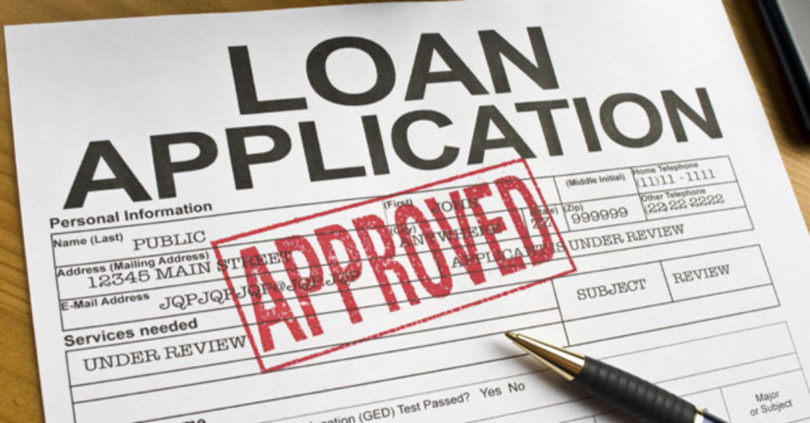The Ultimate Guide to Understanding Pre Approval Student Loans
The Ultimate Guide to Understanding Pre Approval Student Loans
Blog Article
The Duty of Credit History in Protecting Small Company Loans for Business Owners
In the affordable landscape of entrepreneurship, securing a tiny business car loan commonly pivots on the essential factor of debt ratings. A greater credit rating score can open doors to positive lending conditions, while a lower score might offer considerable obstacles.
Comprehending Credit Report
Credit rating are critical numerical depictions of an individual's creditworthiness, acting as a crucial aspect in economic decision-making for loan providers. These ratings are originated from a thorough evaluation of an individual's credit history, encompassing elements such as payment background, debt utilization, size of credit scores history, new charge account, and sorts of credit rating utilized. Typically ranging from 300 to 850, higher ratings indicate reduced danger to loan providers, while reduced scores suggest higher threat.
The estimation of credit scores is accomplished by debt bureaus making use of exclusive algorithms, with one of the most extensively identified designs being FICO and VantageScore. Each design might weigh elements a little differently, yet they all aim to provide a regular measure of credit threat. A strong credit rating reflects the individual's reliability in managing debt, making timely settlements, and keeping a healthy equilibrium between credit scores made use of and readily available credit history.
It is necessary for individuals and company owners to comprehend their credit rating, as these numbers can have far-ranging effects beyond personal financing. Frequently checking one's debt report, dealing with errors, and adopting sound financial habits can significantly boost credit history, therefore enhancing the individual's overall economic profile and creditworthiness.
Importance for Car Loan Authorization
Recognizing one's credit score is foundational, as it plays a substantial role in the procedure of loan authorization for small businesses. Lenders use credit history as a key metric to assess the credit reliability of applicants. A strong credit rating shows a history of liable monetary behavior, recommending to lenders that the candidate is most likely to pay off the loan promptly. Subsequently, a high credit report can dramatically improve an entrepreneur's opportunities of safeguarding a loan with positive terms, including lower passion rates and even more adaptable repayment choices.
As tiny organizations typically require prompt accessibility to funds for growth and sustainability, keeping a durable credit history rating comes to be important. Therefore, understanding and taking care of one's credit score is an essential component of preparing for finance applications and attaining company success.
Aspects Influencing Ratings
Numerous factors contribute to the resolution of a credit report rating, each playing a crucial role in shaping a person's credit score profile. A high proportion of utilized credit to readily available credit report can suggest monetary overextension, detrimentally affecting credit reliability.
Size of credit rating history also elements right into debt rating calculations, with a longer credit score history typically seen extra positively. This metric offers understanding right into the individual's long-lasting economic behavior, offering lenders a broader viewpoint on their credit scores administration abilities. Furthermore, the types of credit score in operation are taken into consideration, as a mix of charge account, such as rotating bank card and installment financings, can show the ability to manage various economic obligations.
Lastly, recent debt inquiries might influence scores (pre approval student loans). Regular applications for new credit can show financial distress, hence negatively influencing ball game. Each of these components is important in the detailed evaluation of a credit rating, influencing a business owner's ability to safeguard a tiny service car loan
Improving Your Debt Rating
Improving one's credit rating rating is comparable to nurturing a yard; cautious interest to essential areas can yield significant go now improvements. Payment history comprises a substantial portion of a debt rating; hence, establishing up automated reminders or repayments can help preserve consistency. High debt utilization proportions, or the quantity of credit report made use of family member to the credit report limitation, can negatively affect scores.

Finally, maintaining older charge account can favorably affect the average age of credit, which is an additional consider racking up designs. While brand-new credit inquiries need to be decreased to avoid short-term rating dips, responsible credit rating administration with time will normally result in score enhancement, hence boosting eligibility for beneficial tiny business loan terms.
Different Financing Choices
Navigating the world of local business financing often needs discovering different options beyond conventional financial institution lendings. Entrepreneurs with less-than-ideal credit history might find these choices not just a lot more available however also customized to their distinct service needs. Amongst the most popular alternatives are online loan providers, which have actually multiplied in the last few years. These systems normally use faster approval procedures and more adaptable terms than standard banks, usually thinking about elements past credit report, such as organization efficiency and money flow.
An additional viable alternative includes crowdfunding, where business owners can increase resources from a big pool of tiny investors using platforms like Kickstarter or Indiegogo. This method not only gives funds yet also validates business concepts with direct involvement with prospective clients. Furthermore, microloans, often supplied by nonprofit organizations, deal with local business and startups. They offer smaller sized car loan amounts with lower rate of interest rates, making them excellent for entrepreneurs who require restricted funding.
Invoice financing and vendor cash money breakthroughs are additionally worth thinking about. The previous entails offering superior billings to a loan provider at a discount rate, while the last offers an advance on future sales. Both alternatives can improve capital without the stringent credit requirements of typical car loans.
Conclusion

These scores are acquired from an extensive evaluation of a person's credit score history, incorporating aspects such as repayment background, credit history usage, length of credit click here to find out more score history, brand-new credit score accounts, and kinds of credit made use of (pre approval student loans). A solid credit report score mirrors the person's dependability in handling financial obligation, making prompt settlements, and maintaining a healthy equilibrium in between credit rating used and offered credit score

Report this page